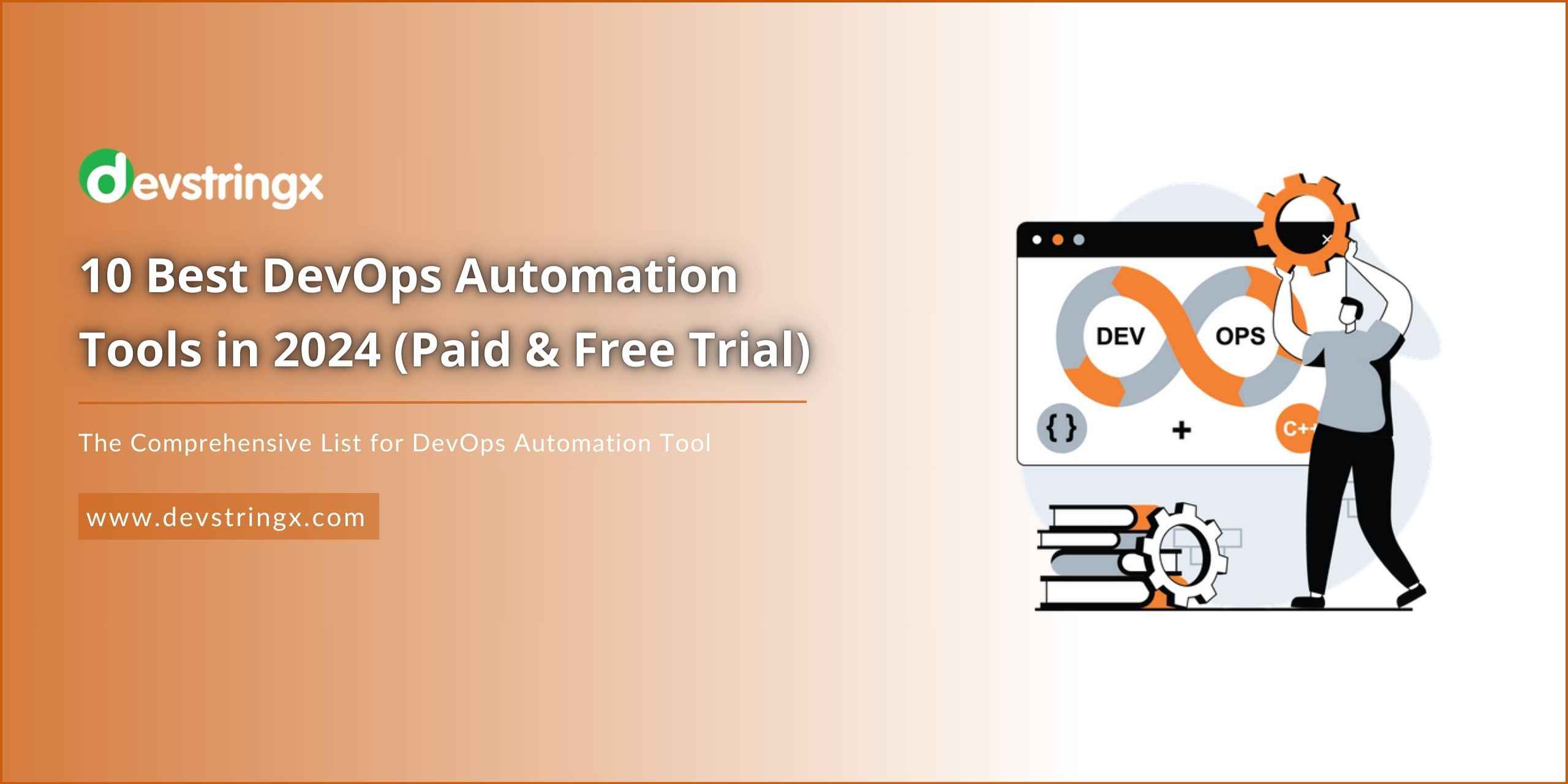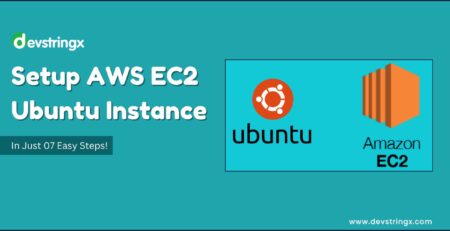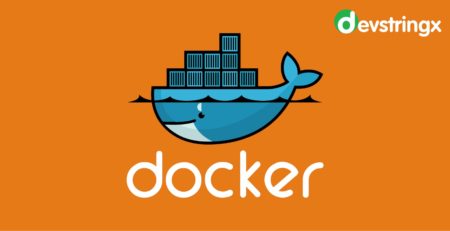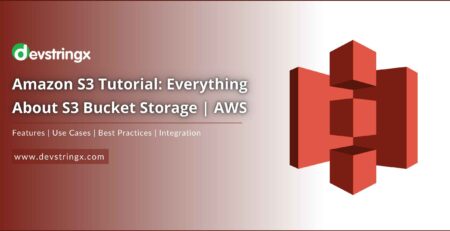Best DevOps Automation Tools in 2024 – Devstringx
In the software development industry, DevOps has been a great practice. It is a proven and effective way to increase the speed of development along with reliability and scalability.
With the help of DevOps automation tools, you make your software development process even faster and more efficient.
However, you may get confused as to what DevOps tools to use to increase your or your employees’ productivity. So, here is a list of some of the best DevOps automation tools for your help.
10 Best DevOps Automation Tools
Below we shared the list of top 10 DevOps automation tools that help you to faster, better, greater, product delivery with reduce complexity of products.
1) Puppet
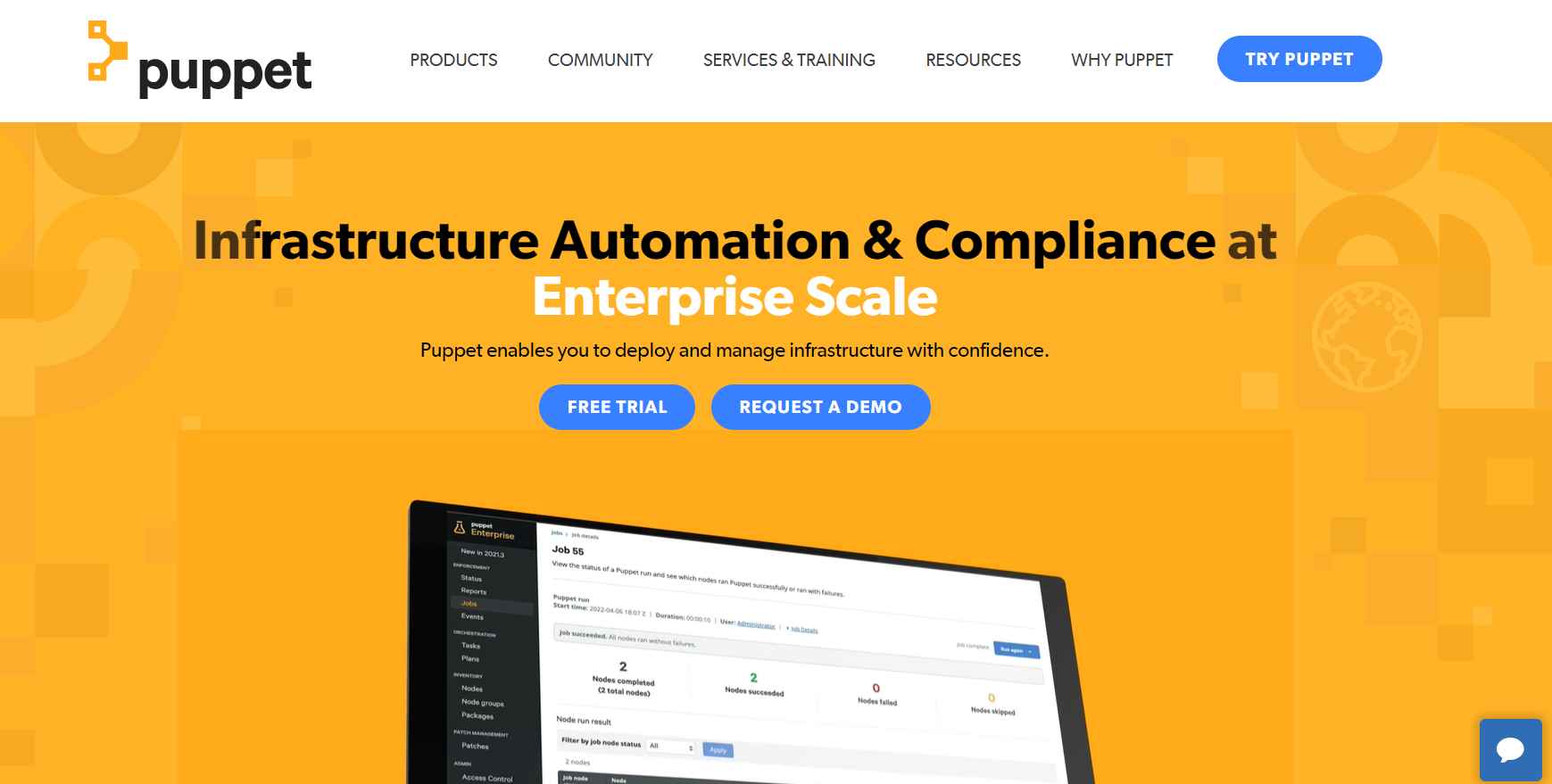
Puppet is one of the best DevOps automation tools for managing computer setups seamlessly. It has both a free as well as a paid version. Moreover, you can use it to automate and organize how computers are set up.
- When you use Puppet, you have to describe the setup for all the systems you want to control. You can do this by writing code in Puppet’s specific language.
- This DevOps automation tool handles the task of getting and keeping your system in a specified state.
- The best part is that Puppet’s code is declarative. It simply means that you only have to state the desired final state of your systems. Hence, it saves you time as you don’t have to explain the steps to reach that state.
2) Jenkins

Jenkins is not like other DevOps automation tools. It is so because Jenkins is made to be used inside a company. So, you can easily add extra features to it by using plugins. It is one of the best free DevOps automation tools that is also an open source software. Hence, it can run on computers with Windows or other Unix-based systems.
- Jenkins is written in the Java programming language.
- This DevOps automation tool can also be set up on cloud-based platforms.
- Jenkins can support continuous integration as well as continuous deployment. Hence, it is one of the most important DevOps automation tools.
3) Bamboo
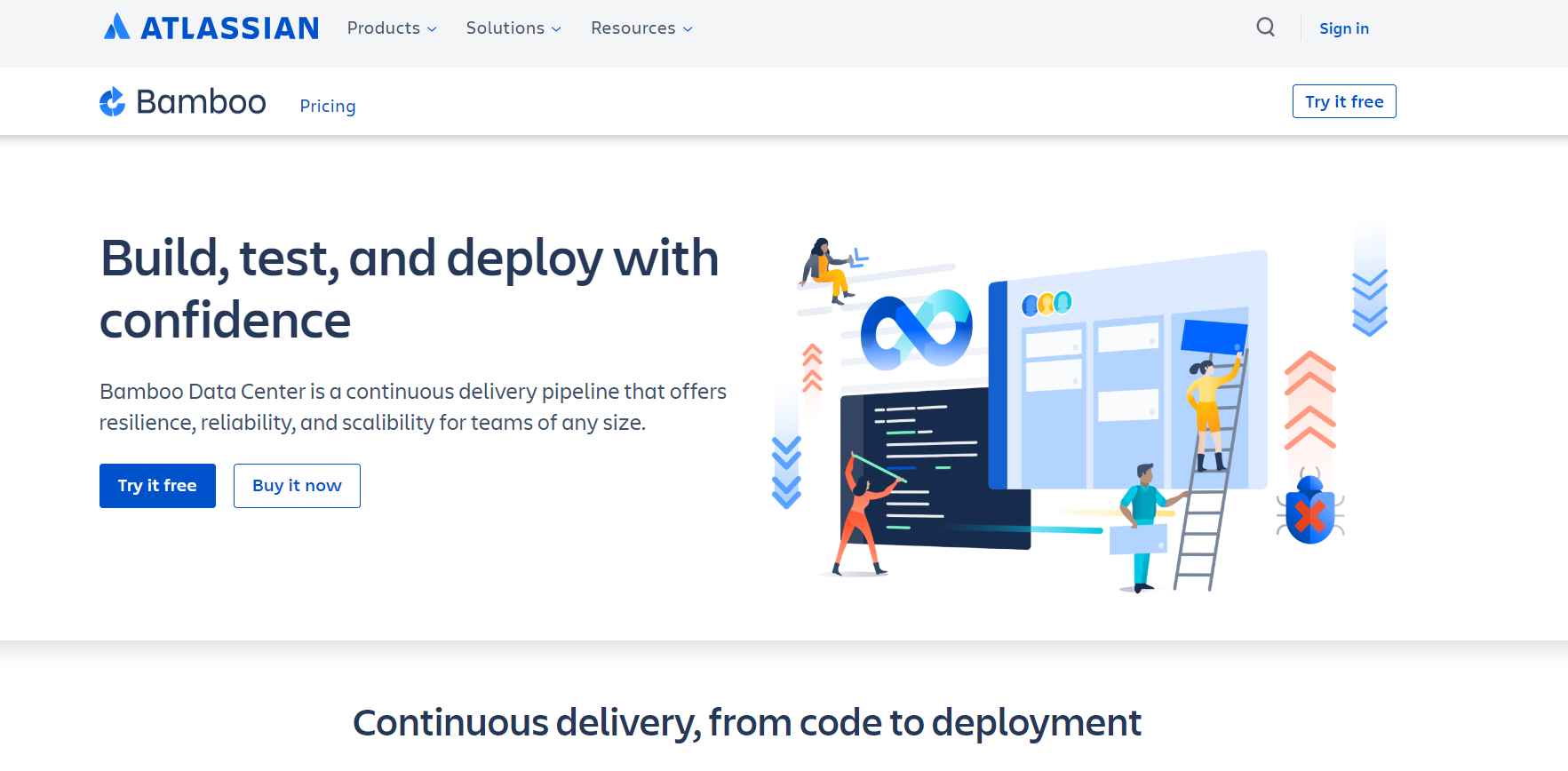
Mostly used for continuous integration, Bamboo is one of the best DevOps automation tools in the market. Atlassian developed it. Bamboo helps you to build, document, test, and prepare an app for distribution.
- Bamboo has a user-friendly interface. Moreover, you can use different tools in this DevOps automation tool.
- It helps you to build and deliver robust software continuously.
- Bamboo is one of the finest DevOps automation tools that ensures high quality. Furthermore, it gives you clear insights into the release process. Hence, you can focus more on coding.
4) Git
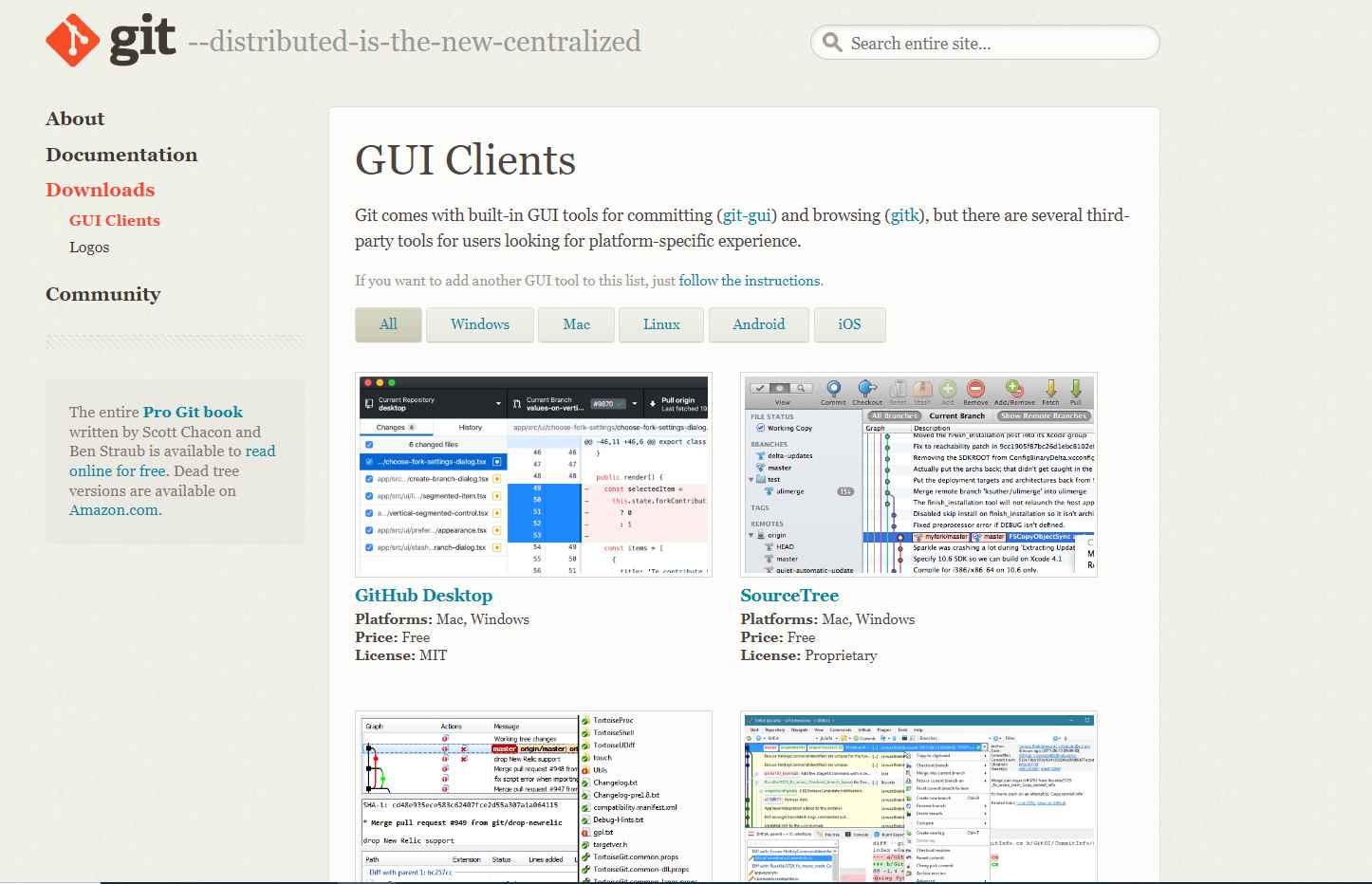
Git is a tool to handle source code. It is like a system for keeping track of all the changes in a project. Git is mainly used in DevOps to make changes to the source code. Hence, you can work on your code without facing problems.
- Git works well with various communication methods like SSH, HTTP, etc.
- Git is helpful in projects where you have to work together with multiple people on a shared code.
- Its flexibility makes it a valuable choice for your mission-critical software.
Good to Read:- List of Top Manual Testing Tools for Mobile Applications
5) Kubernetes
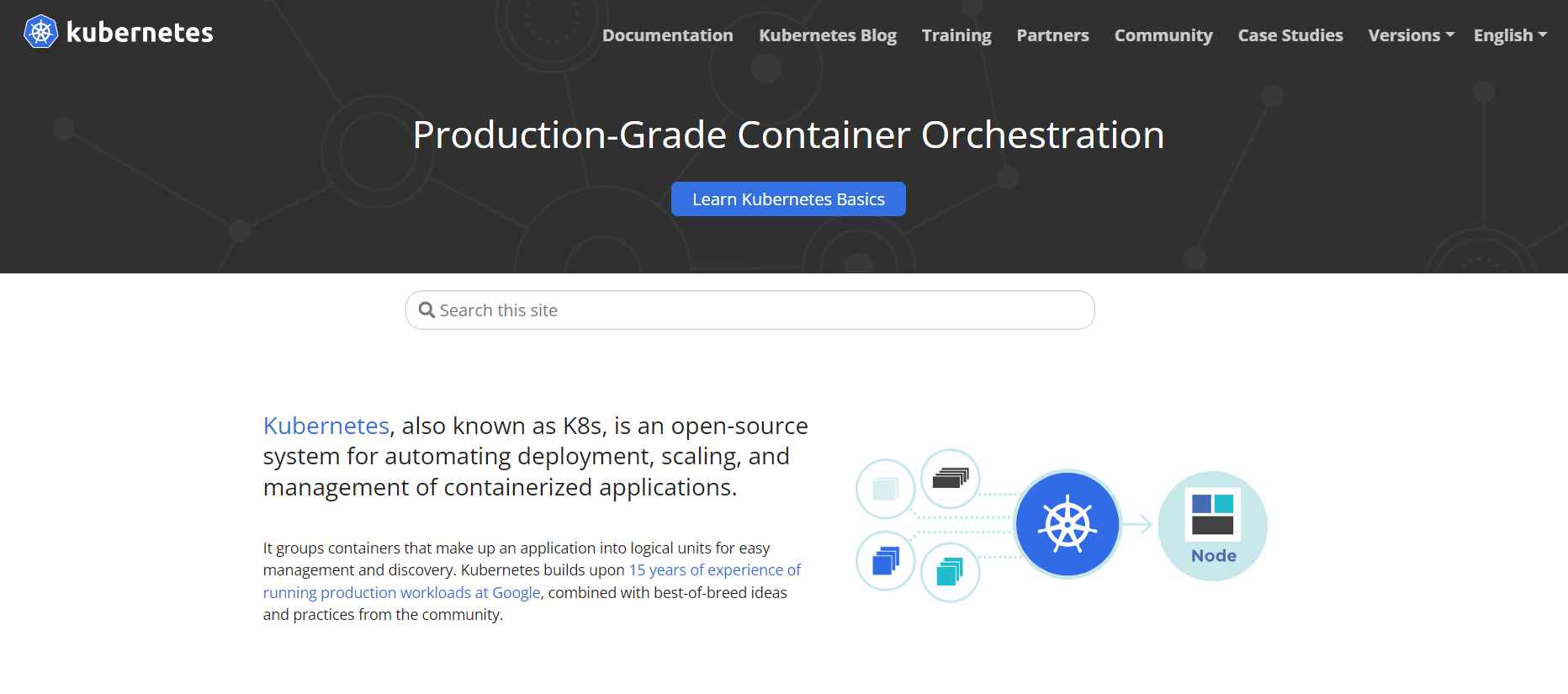
Kubernetes is a popular DevOps automation tool for managing containerized applications. It takes care of tasks like deploying, resizing and connecting. Moreover, it makes sure that your application runs smoothly. You can think of it as organizing and managing different parts of an application. So it becomes easy for you to find and work with them.
- Kubernetes offers a wide range of features that enable the creation of high-quality DevOps pipelines for businesses.
- Your team can also leverage Kubernetes to automate tasks that were previously done manually.
- The automation offered by this DevOps automation tool can enhance your company’s performance and productivity.
6) Ansible
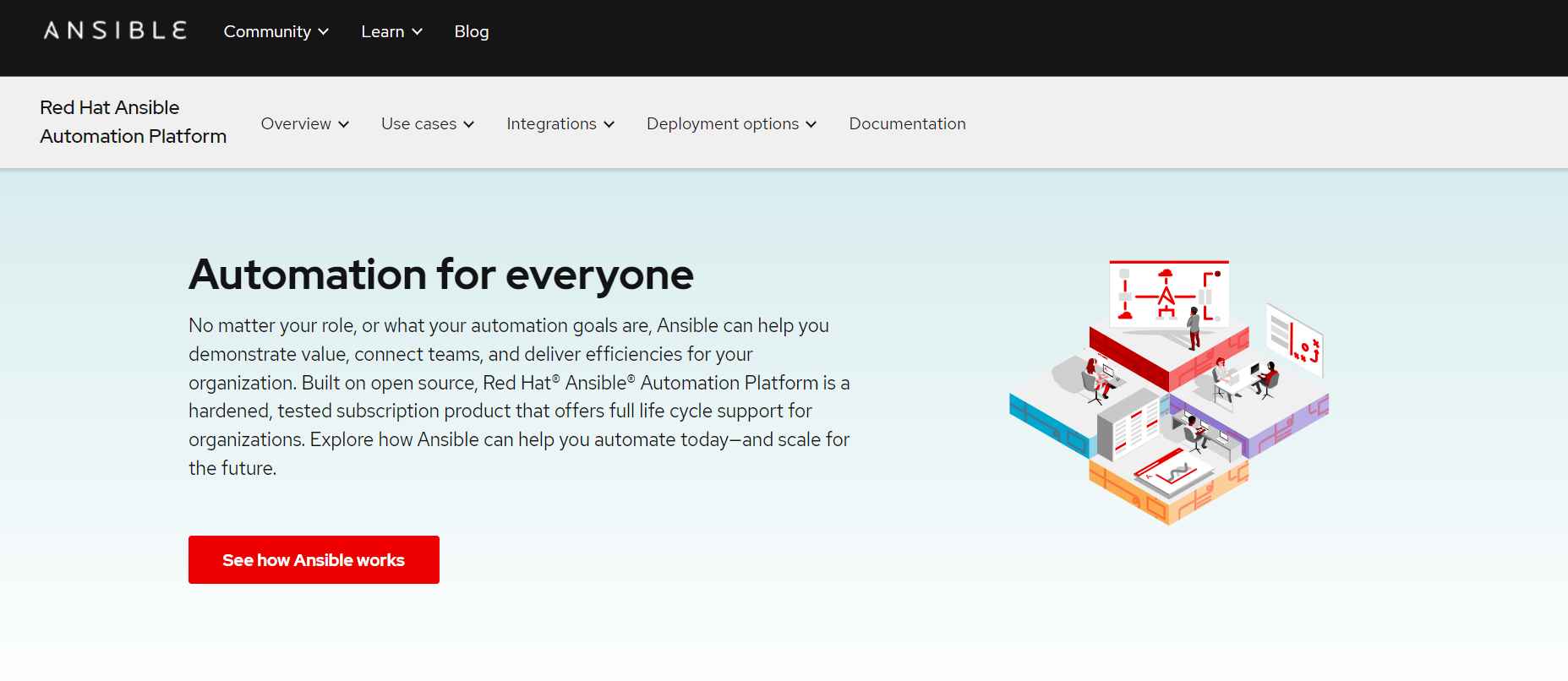
Ansible is one of the finest DevOps automation tools used by experts. It helps to speed up software delivery by automating how computer resources are set up. It is an open-source DevOps automation tool. Hence, it can work on different types of computers.
- Ansible simplifies DevOps by automating the process of adding your apps to your production system.
- It is a preferred choice among DevOps tools for handling your IT infrastructure.
7) GitHub

GitHub is one of the best Azure DevOps automation tools in the market. It helps you to make your software faster and safer by using methods used by the largest community of developers.
- All the tools provided by GitHub work very smoothly with Azure products.
- You can automate the process of moving code to the cloud by using GitHub. It is so because GitHub’s actions are specifically designed for Azure.
8) Azure Pipelines
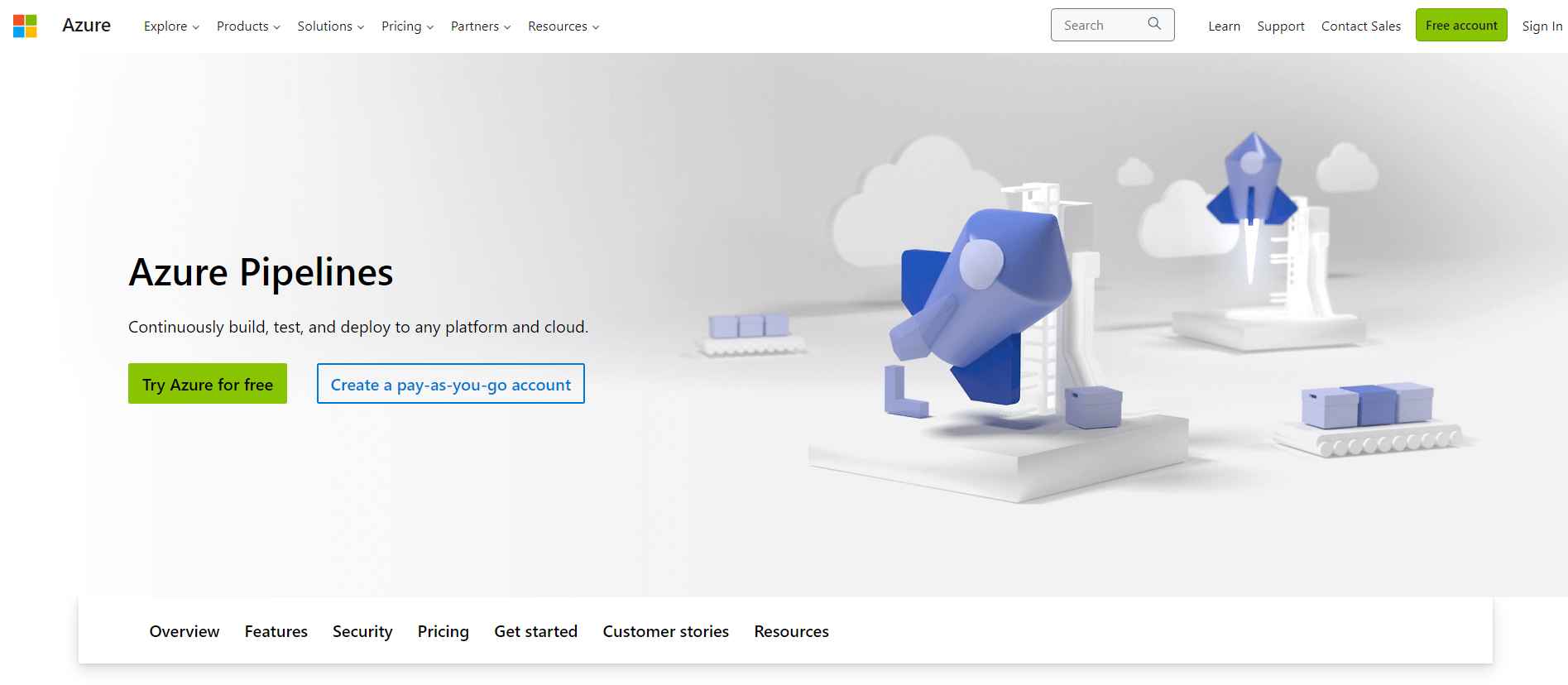
Automate your software building and deployment tasks using pipelines. It is one of the best Azure DevOps automation tools that frees up your time from handling technical details. So you can give more time to your creative work.
- You can discover and use different community-created tools to enhance your workflow.
- You can even set up continuous delivery for your software to go to any cloud. In fact, you can see how it visually moves through several stages.
Good to Read:- List of Top Automation Testing Tools for Mobile Applications
9) Azure Boards
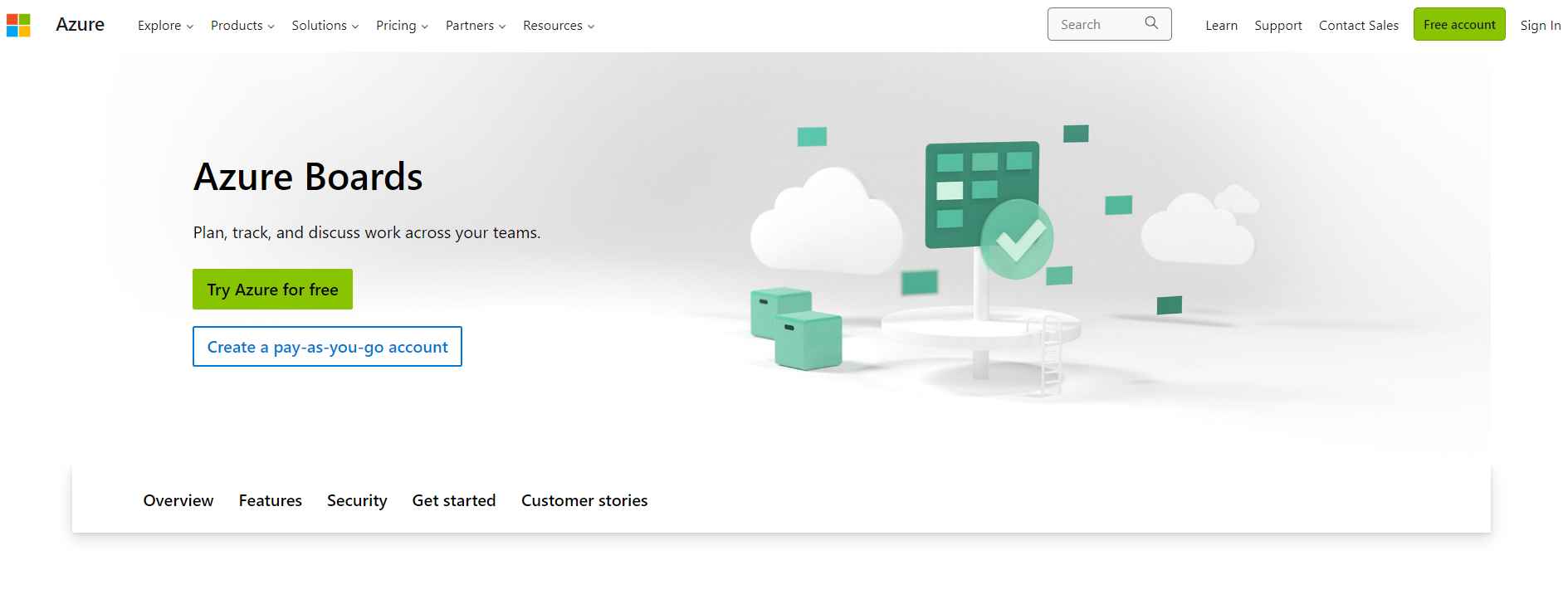
Azure boards are the finest Azure DevOps automation tools to keep track of all your ideas as they progress through different stages. Moreover, it makes sure that your team is on the same page by connecting code changes directly to the associated tasks.
- You can use the scrum boards and other planning tools to plan sessions effectively.
- Azure boards give you a better understanding of your project’s condition and progress. It does so by using powerful analytical tools and customizable dashboard widgets.
10) Azure Monitor
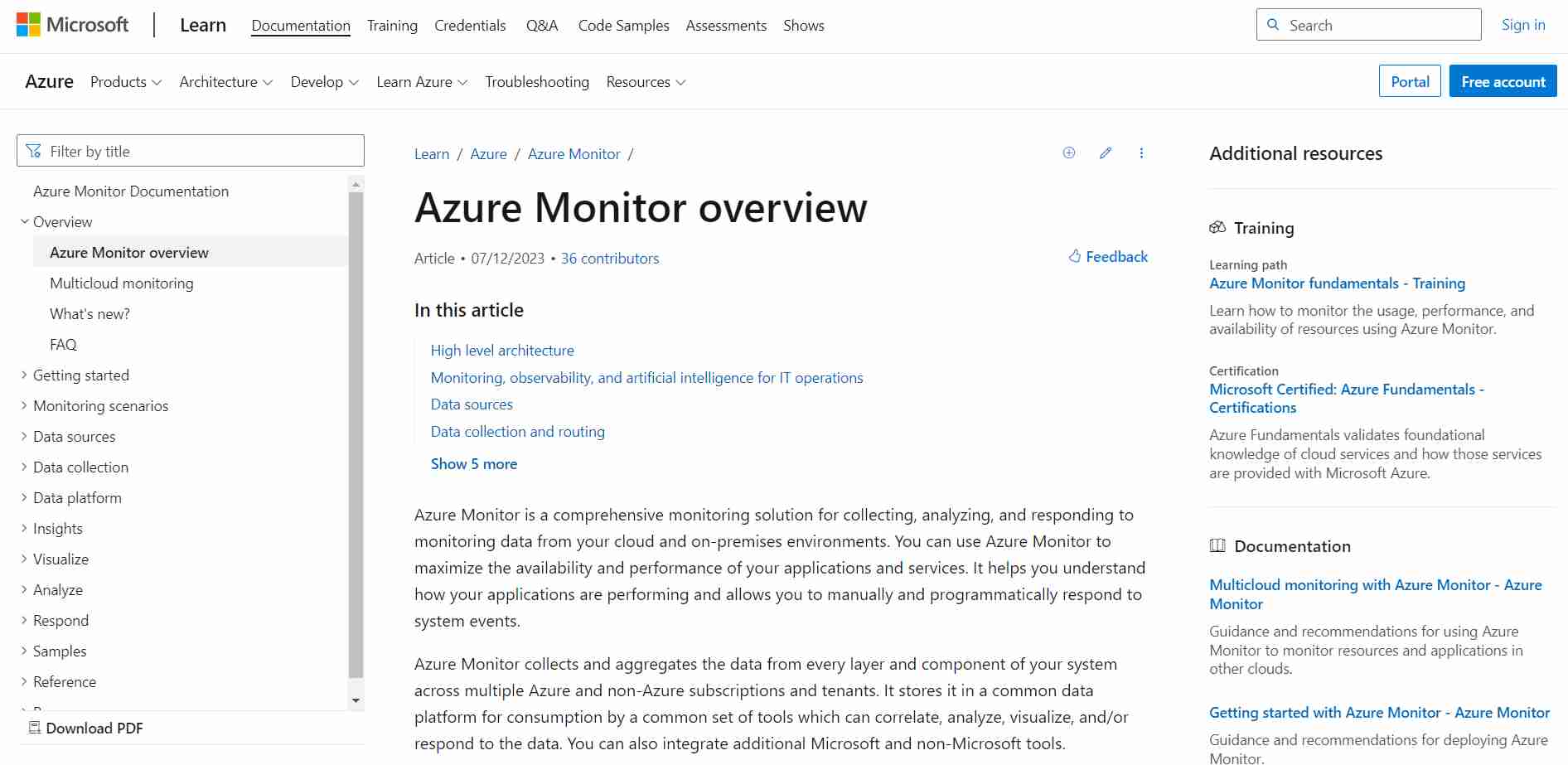
Azure monitor gives you access to powerful dashboards and reporting features. All these work together with Azure Managed Grafana to show you everything in one place despite using multiple cloud systems.
- With this Azure DevOps automation tool, you can keep your data safe with encryptions.
- You can even enhance your security further and connect securely to your private network using Azure private link support.
Advantage of DevOps Automation Tools
Before we go to the DevOps automation tools list, let us discuss some of its benefits.
DevOps tools reduce your development time very significantly. Furthermore, with DevOps automation tools, you can start scaling your applications from the beginning itself. The use of infrastructure like Code within DevOps automation tools relies on good coding skills. Hence, it enhances both the scalability and adaptability of your software.
Conclusion
DevOps as a process is already very efficient for software development companies. However, the use of DevOps automation tools in this process enhances it even more. With these tools, you can ensure that everything you are producing has up-to-the-mark security along with space for scalability, flexibility and continuous improvement.

